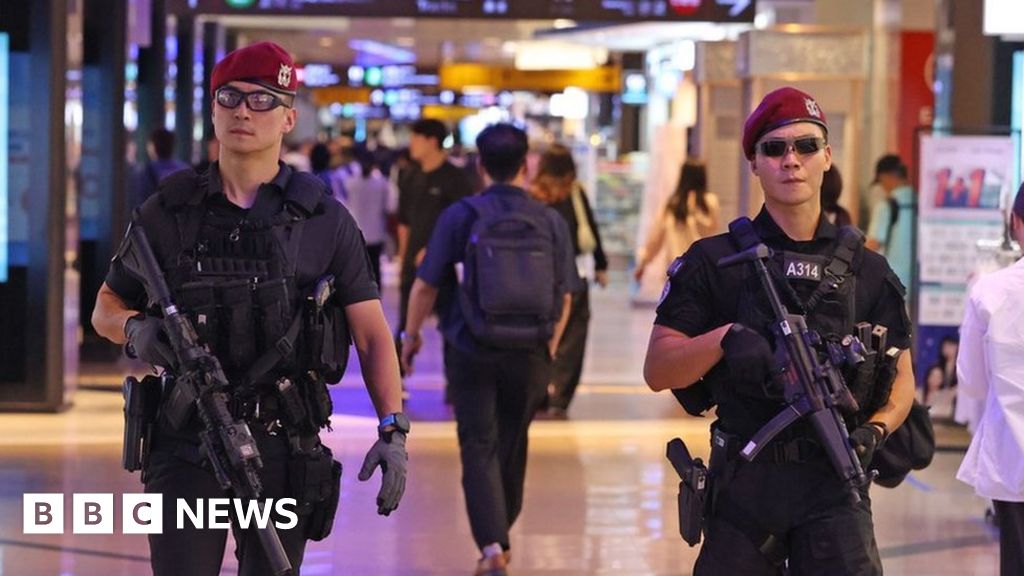A knife darting out in a packed subway car. An assailant, chasing shoppers, stabbing wildly in the street.
These nightmares have played out in the minds of many South Koreans following a mass stabbing attack last week - the country’s second in as many weeks.
On 21 July, a man attacked commuters in the capital, killing one person and stabbing three more at a subway station. He later told police he lived a miserable life and “wanted to make others miserable too”.
On 21 July, a man attacked commuters in the capital, killing one person and stabbing three more at a subway station. He later told police he lived a miserable life and “wanted to make others miserable too”.
Well if that isn’t a succinct summary of why many of these attacks happen. So often, they are carried out by alienated and angry young men who want to punish society for some reason.
They tend to be more dramatic in the US because citizens have access to guns, but the underlying causes are similar.
No way to figure what “some reasons” are but society must suffer. That’s a price people in charge are willing to pay.
I think any society that equates social worth with financial success is vulnerable to this tragic phenomenon, especially if the responsibility for failing to become “successful” is laid solely on the shoulders of the individual rather than on society itself.
This is the best summary I could come up with:
In South Korea, they are known as “Don’t Ask Why” or Mudjima crimes - inexplicable acts of violence targeting strangers, driven by no personal link to victims or obvious motive.
While overall data shows no rise in violent crime - South Korea last year in fact recorded its lowest rates in a decade - the recent stabbings have driven the perception that Mudjima acts are more common, and society more dangerous.
“Murder and other violent crime rates are very low compared to other countries, and they have been steadily declining in the last 10 years,” said Prof Hyojong Song, a criminology expert at Korea University in Seoul.
Experts have pointed to underlying social pressures in South Korean society - from unstable job prospects and housing, to a continued stigma around mental health and a lack of support services.
On social media, users posted warnings for the weekend of 4-6 August: “Please avoid these areas in South Korea” was one TikTok video which drew more than 300,000 views across Asia.
An editorial this week in the Korean Herald summed up many people’s feelings: "It is deeply shocking to witness such violent crimes committed in a country known for a relatively high level of public safety.
I’m a bot and I’m open source!
deleted by creator
On 21 July, a man attacked commuters in the capital, killing one person and stabbing three more at a subway station.
Weak. If he has FREEDOM, he could have done so much better with a gun and been another mass shooting #403 in the US.
Ah yes.
A crime in another country?
Well, I must bring it back to the USA as I have nothing to say about the actual story.
You too have nothing to say about the actual story.



